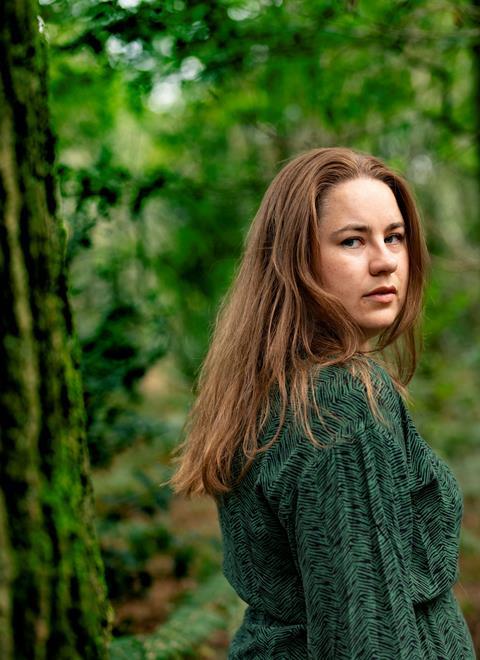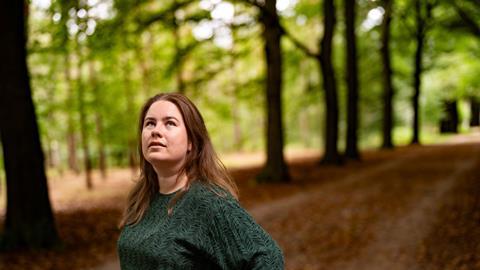Marjolein Velthoen (32) chose a career as a patent attorney after completing a PhD in catalysis. It allows her to study inventions and use her affinity for languages. ‘From the outset, you have to build up all your knowledge of the invention in language.’
First a master’s degree in chemistry, then a PhD, and then another three years studying intellectual property law. Only 10 to 25 people enter the profession of patent attorney each year. Being a patent attorney is a protected profession, and you have to have at least a master’s degree in a science subject to start the course. The training itself is very much language-based. In addition to working in a patent office, you have to study, read and write a lot.
‘The combination of being able to enjoy articulating your arguments very precisely and being intrinsically motivated to understand science is, I think, rare,’ says Marjolein Velthoen. She followed this particular path and became a patent attorney. She did not know about the profession until she was approached by a recruiter at the end of her PhD. She decided to apply to Hoyng Rokh Molegier, where she received her training. ‘You start with small assignments for different clients and you gradually get more responsibility. You learn the profession from your mentors. Meanwhile, you take courses in civil law, patent law and other specific subjects related to intellectual property.’
Velthoen is now a Dutch patent attorney and left the firm after four years to join Avantium. The company is involved in the kind of chemistry she was trained in, including the electrocatalytic conversion of CO2 into monomers and the development of new polymers. ‘I also wanted to see the other side of the profession and Avantium attracted me because of its focus on sustainable chemistry. Here you are closer to both the scientists and the management, and they are doing exactly the kind of chemistry I like.’ Alongside her job, she is continuing her studies to become a European Patent Attorney. She passed her pre-qualifications this year and will take the exam in March next year.
As a corporate patent attorney, you are close to both science and management.
Breaking down assumptions
Velthoen is very happy with what she’s chosen to pursue. ‘I can still study in detail until I fully understand an invention, and I stay in close contact with science. In many jobs, when you move up, you have to get involved in management and sales. But here you stay connected with science. You are the first to know about very cool innovations.’ As a patent attorney, she looks at an invention from different angles. ‘In a patent, you have to break down all the assumptions and from the outset, you have to build up all your knowledge of the invention in language. You have to ask the right questions of scientists to write a good patent, be able to present the gist to management and defend the invention in a courtroom.’
Sometimes Velthoen misses doing science herself. Now she can suggest follow-up research, but she can only hope that her colleagues will follow through. Fortunately, the challenge is never far away. When a patent goes to court, lawyers and judges have to interpret the text. ‘It can stand or fall on a comma. You have to think broadly about the problem and then write it down very specifically.’

Who is Marjolein?
What did you study and where?
‘Chemistry at Utrecht University and a PhD in catalysis.’
What motivates you in your work?
‘Knowledge. I love learning, acquiring and sharing knowledge.’
What are your short-term goals?
’To get European approval, that’s the biggest goal for this year.’
What are your long-term goals?
’I have decided not to set an end goal. My ideal position is to be a patent attorney with a good connection to science. It always comes back to my motivation: to be in a position where I can learn and enjoy gaining a lot of knowledge.’













Nog geen opmerkingen